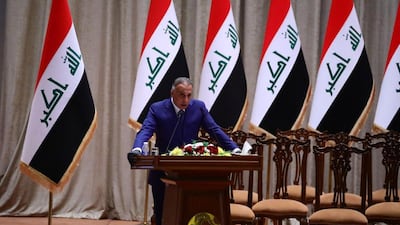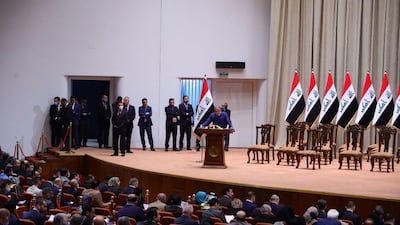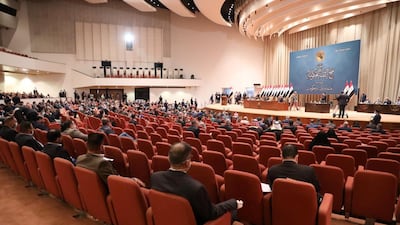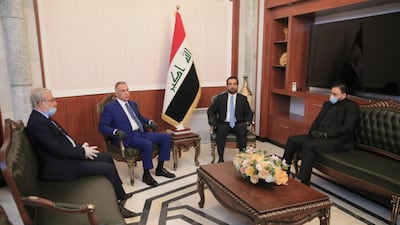Iraq’s newly appointed government must listen to public concerns when shaping its policies, the UN envoy to the country, Jeanine Hennis-Plasschaert said on Tuesday.
Mustafa Al Kadhimi was designated Iraqi Prime Minister last week after two earlier candidates failed to form a government.
Mr Al Kadhimi faces the daunting task of rebuilding Iraq's shattered economy, fighting the coronavirus pandemic and curbing corruption.
“The courageous conviction expressed by countless Iraqis in recent months; their hopes and demands remain burning issues and I hope they should guide the new government,” Ms Hennis-Plasschaert told the UN Security Council.
She said Iraq's challenges "did not arise overnight" and time was not on its side.
“I remain convinced that a more just, prosperous and resilient Iraq can emerge from the current compounded crises," Ms Hennis-Plasschaert said.
"But for that to happen, political will is fundamental."
Since assuming office, Mr Al Kadhimi promised to seek justice and compensation to relatives of people killed in last year's mass anti-government protests.
On Sunday, the Supreme Judiciary Council said it ordered the release of protesters detained since demonstrations erupted last October, in line with the prime minister’s call.
There is no indication that anyone has yet been released.
“The new prime minister’s worthy aspirations must be turned into action urgently," Ms Hennis-Plasschaert said.
"And let me emphasise that Iraq does not have the luxury of time, nor can it afford destructive petty politics."
Public trust in the political elite appears to be at "an all-time low" given the large quantities of "unfinished business", she said.
During the first wave of the demonstrations, security forces and militias were behind the killing of more than 500 protesters but dozens were also kidnapped by armed gangs.
Mr Al Kadhimi vowed to find the truth about what happened during the months-long demonstrations and promised to hold to account all those "who shed Iraqi blood".
Iraq has placed strict measures to contain the spread of the coronavirus since its outbreak. The country has 2,913 infected cases and 112 deaths.
"Necessary curfews have brought commercial activity to a near standstill, imperilling the already problematic livelihoods of many Iraqis who rely on daily earnings to feed themselves and their families," Ms Hennis-Plasschaert said.
She said decreased economic opportunities and continuing corruption brought the threat of more unrest.
Ms Hennis-Plasschaert said Iraq's lack of diversification has laid bare the depth of its economic vulnerabilities.
"Broadening the revenue base of the country must become a primary policy objective," she said.
Ms Hennis-Plasschaert urged Mr Al Kadhimi to take policies and action to ensure "the coronavirus threats do not reverse hard-won security and economic gains".
She said that although the new government faced many challenges, the opportunities were limitless.











